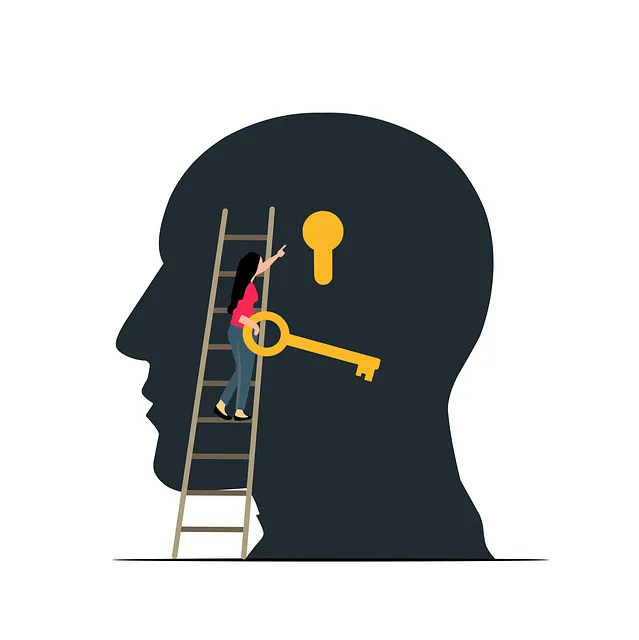The Kaiser Permanente mental health center reviews Lafayette highlight a growing demand for accessible and effective mental health support, especially in community settings. By analyzing patient feedback, the center identified areas where self-assessment tools could enhance care delivery, including the need for mental wellness coaching programs and conflict resolution techniques. These reviews drive the development of user-friendly self-assessment platforms that support confidence, personal growth, and navigation through mental health challenges. Inspired by successful initiatives like the Kaiser Permanente mental health center reviews Lafayette, these tools integrate questionaries, validated scales, risk factor assessments, and prompts for reflection on coping strategies to promote holistic mental wellness. Continuous improvement is key, with precise metrics, user feedback mechanisms, and data analytics ensuring tool relevance and engagement.
In today’s fast-paced world, prioritizing mental wellness is paramount. This article explores the development of mental wellness self-assessment tools, a crucial resource for individuals to gauge their psychological state. We delve into the inspiration from Kaiser Permanente mental health center reviews Lafayette, which highlight the impact of accessible assessment methods. Key components and a step-by-step guide for creating effective tools are presented, emphasizing their role in fostering better mental health outcomes. Additionally, we discuss measuring success and continuous improvement to ensure these protocols remain impactful.
- Understanding the Need for Self-Assessment Tools: Exploring the Kaiser Permanente Mental Health Center Reviews Lafayette and Their Impact
- Key Components of Effective Mental Wellness Self-Assessment Tools
- Developing and Implementing Self-Assessment Protocols: A Step-by-Step Guide
- Measuring Success and Continuous Improvement in Mental Wellness Self-Assessment
Understanding the Need for Self-Assessment Tools: Exploring the Kaiser Permanente Mental Health Center Reviews Lafayette and Their Impact

The development of mental wellness self-assessment tools is a crucial step towards empowering individuals to take charge of their psychological well-being. One notable example that underscores this need is the Kaiser Permanente Mental Health Center Reviews Lafayette. These reviews highlight the increasing demand for accessible and effective mental health support, especially in community settings. By examining patient feedback, the center identified areas where self-assessment tools could significantly enhance care delivery.
The reviews indicate a growing recognition of the importance of mental wellness coaching programs development and conflict resolution techniques as integral parts of comprehensive treatment. Patients often seek tools that enable them to monitor their symptoms, track progress, and build resilience. This insight drives the creation of user-friendly self-assessment platforms that can boost confidence, facilitate personal growth, and serve as valuable resources for individuals navigating mental health challenges.
Key Components of Effective Mental Wellness Self-Assessment Tools

Mental wellness self-assessment tools are multifaceted instruments designed to evaluate an individual’s mental health status and provide insights for personalized care. Effective tools should incorporate several key components, such as comprehensive questionaries covering symptoms, emotional well-being, and coping mechanisms, alongside validated scales assessing specific aspects like anxiety or depression. Integrating features that consider cultural sensitivity in mental healthcare practice is crucial, ensuring the tool resonates with diverse user backgrounds.
Furthermore, a robust self-assessment should include sections on risk factors and resilience. By gauging potential risks, such as those highlighted in a Risk Assessment for Mental Health Professionals, these tools empower users to recognize vulnerabilities and take proactive measures. Equally important is fostering inner strength development through prompts that encourage reflection on personal resources and coping strategies. Incorporating these elements effectively, as seen in the Kaiser Permanente mental health center reviews Lafayette, enhances the tool’s ability to support holistic mental wellness.
Developing and Implementing Self-Assessment Protocols: A Step-by-Step Guide

Developing and implementing self-assessment protocols is a crucial step in promoting mental wellness at home and in communities, as exemplified by successful initiatives like the Kaiser Permanente mental health center reviews Lafayette. This process involves several steps designed to create effective tools that can be used by individuals to gauge their inner strength development.
The first step is identifying the specific areas of mental wellness to focus on, such as stress management, emotional regulation, and social connectedness. Following this, experts in mental health, including healthcare providers with cultural competency training, collaborate to design questions and assessments that accurately reflect these aspects. Once developed, these self-assessment tools should be pilot-tested with a diverse group of users to ensure their validity and reliability. Feedback from the initial testing is then incorporated into refining the protocols, making them more sensitive to individual needs and cultural contexts. Finally, broad dissemination through various channels, such as digital platforms and community events, ensures that these valuable resources reach those who need them most.
Measuring Success and Continuous Improvement in Mental Wellness Self-Assessment

Measuring success and driving continuous improvement are paramount when developing mental wellness self-assessment tools, drawing inspiration from renowned healthcare providers like Kaiser Permanente’s mental health center reviews in Lafayette. These reviews often highlight the importance of precise metrics to gauge an assessment tool’s effectiveness. By setting clear goals and defining key performance indicators (KPIs), developers can objectively evaluate whether the tool is enhancing users’ mental wellness. For instance, tracking improvements in mood management scores or increased participation in mindfulness meditation programs over time demonstrates progress.
Moreover, integrating user feedback mechanisms into the self-assessment process empowers individuals to share their experiences and suggestions. This continuous improvement cycle involves regularly reviewing user feedback alongside data analytics to refine and adapt assessment tools. Encouraging users to develop coping skills through interactive features and providing resources for further support can lead to more comprehensive mental wellness improvements. Such an iterative approach ensures that the self-assessment tools remain relevant, engaging, and aligned with the evolving needs of those seeking mental health support, much like Kaiser Permanente’s commitment in Lafayette.
The development of robust mental wellness self-assessment tools, as highlighted by the Kaiser Permanente mental health center reviews Lafayette, is a pivotal step towards empowering individuals to take charge of their mental health. By incorporating key components such as accessibility, validity, and user-friendly interfaces, these tools can significantly improve mental healthcare outcomes. Following a structured guide for development and implementation, along with continuous improvement based on measured success, ensures that self-assessment protocols are effective and beneficial for those seeking support. This approach not only facilitates early detection but also promotes proactive mental wellness management in the digital age.






